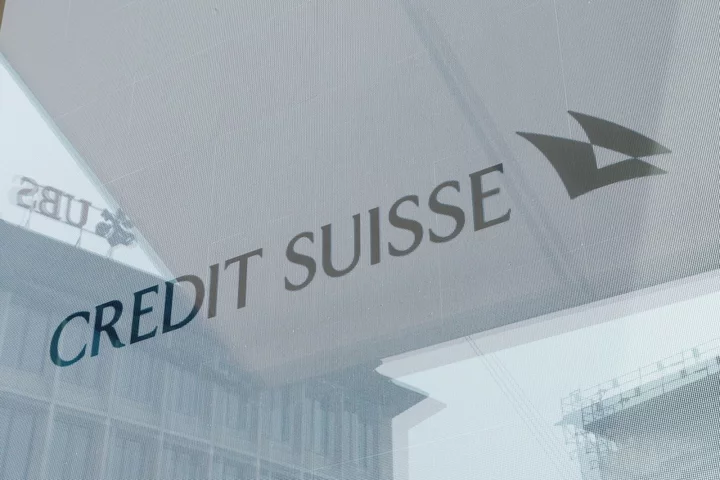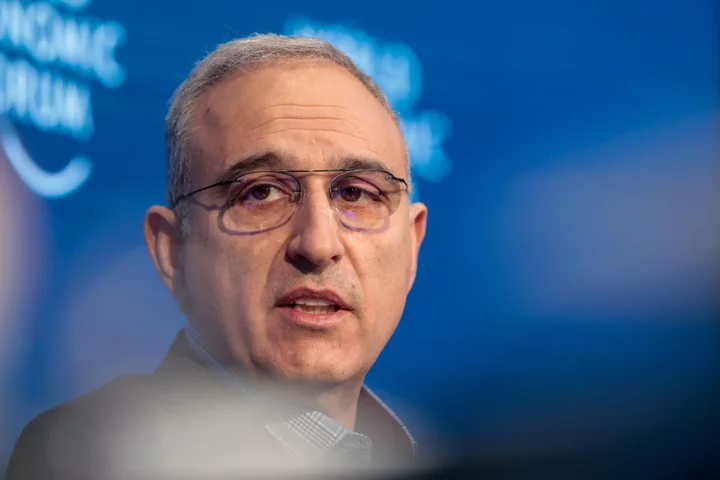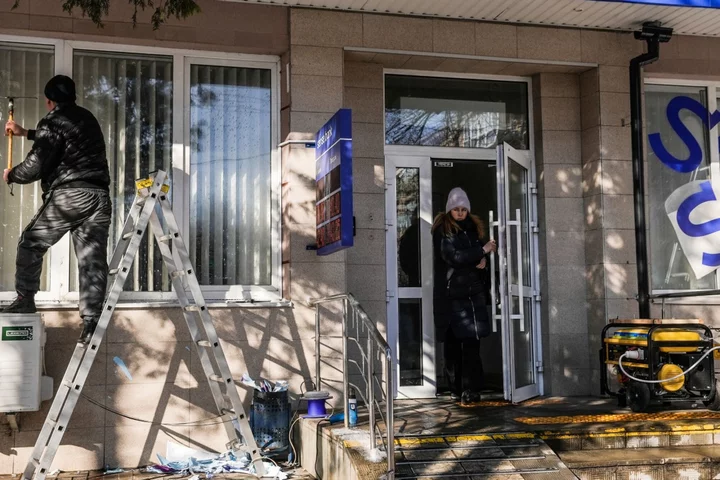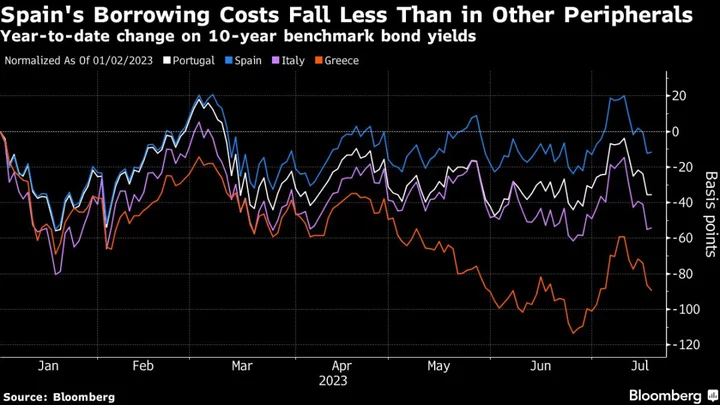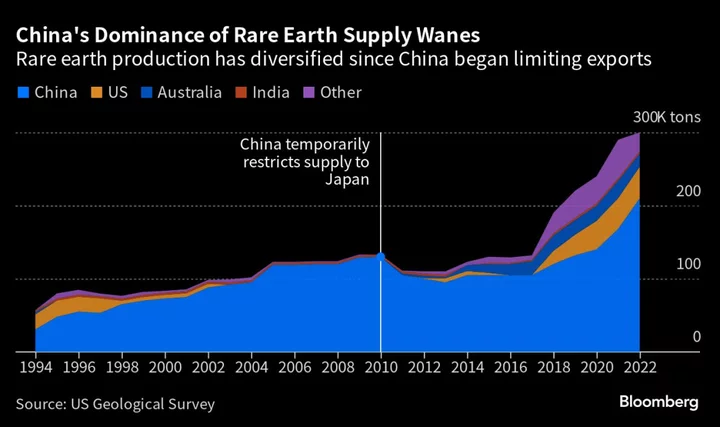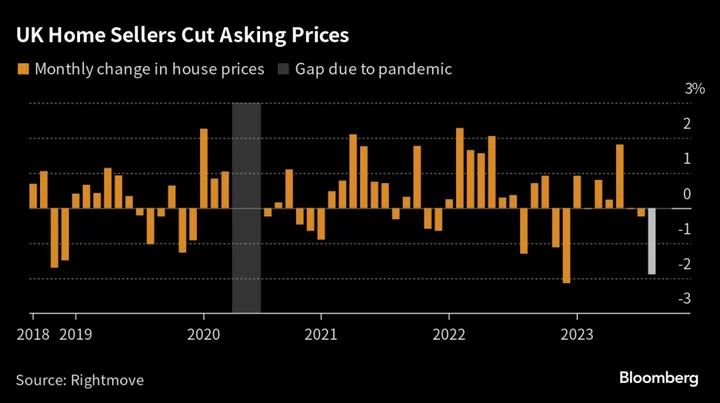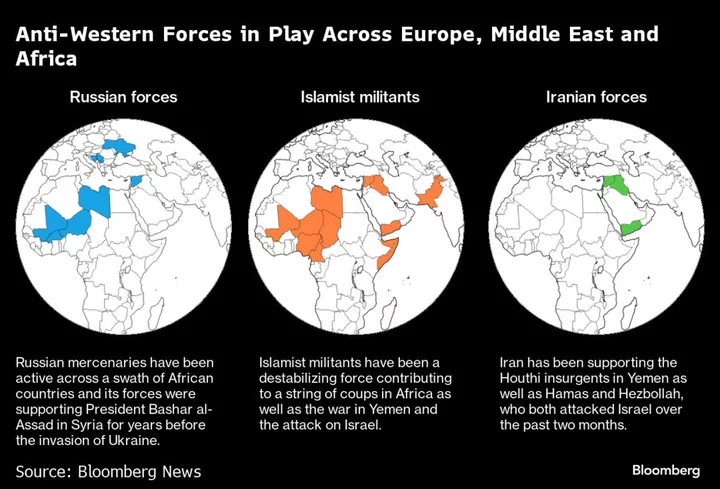Aladdin Hangari, one of Credit Suisse’s top private bankers in the Middle East, is in advanced talks to join HSBC Holdings Plc in a further sign of intensifying competition for the wealth management business in the oil-rich region.
Hangari’s hire is not final yet and UBS Group AG might still retain him, people familiar with the matter said, who asked not to be named as the details aren’t public. Four other staff are in discussions to leave alongside him, the people said.
As the chief executive for Credit Suisse’s operations in Qatar, Hangari is known for his role handling the relationship between the Swiss bank and the Qatari royal family, one of the bank’s major shareholders over the past decade and a major client.
Hangari’s departure comes as a setback to the ambitions of UBS to build on its on-the-ground presence in the region. Credit Suisse’s long-standing links are a potential asset, following the near-collapse and takeover by UBS of the Swiss bank earlier this year — if the larger lender can retain key staff.
Clients will be served by existing team members and successions will be announced in due course, a Credit Suisse spokesperson said.
UBS set up a new Doha wealth office in 2021 to tap a market booming on the back of surging hydrocarbon income. The move also opened the opportunity for UBS to potentially manage assets on behalf of one of the world’s largest sovereign wealth funds, the Qatar Investment Authority.
In recent years, UBS has made efforts to expand its teams across the Middle East, poaching several private bankers from Credit Suisse, including teams covering the United Arab Emirates and Israel.
Separately, a team of 10 Credit Suisse wealth managers covering the Middle East resigned in recent weeks to join Deutsche Bank AG, according to the people familiar with the matter. Senior private bankers set to join Deutsche Bank from the Swiss lender include Saad Osseiran, Nasri Nohra, Rabih Demashkieh and Agnes Tan, all managing directors, the people said.
HSBC didn’t immediately respond to requests for comment. Deutsche Bank declined to comment.
In order to stem the exodus and prevent poaching, UBS has been offering a rare commission for some UBS and Credit Suisse private bankers to bring in fresh cash, and has sent promises of bonuses for mission-critical personnel as means to convince them to stay on with the bank.
After the government-brokered takeover, UBS sent its wealth head Iqbal Khan, who ran a similar business at Credit Suisse, on a world tour including the Middle East to speak to key talent and assure them that the larger rival wanted to keep them.
Still, the departures show that the measures may not be enough.
Hussam Qasim, another Credit Suisse private banker for Qatar, left the firm to join the QIA as part of its domestic investment team, people familiar told Bloomberg last month.
By contrast the hires would mark a coup for both HSBC and Deutsche Bank, in a region where oil wealth has helped swell a burgeoning class of ultra-rich families and businessmen. The Middle East has emerged as a key battle ground for global wealth managers keen to capture a bigger slice of the regional market.
Claudio de Sanctis, Deutsche Bank’s head of international private banking and former Credit Suisse private banker, is planning to “significantly invest” in the Middle East and Southeast Asia, in particular in Saudi Arabia and Indonesia. The German lender has already poached three bankers from Credit Suisse covering wealth clients in Saudi Arabia earlier this year.
Read more: Deutsche Bank Targets Asia, Middle East for Wealth Ambitions
HSBC expanded its presence in the United Arab Emirates last year, in an attempt to boost its international private banking business and tap into the growing wealth of the region.
Hangari has been with the Credit Suisse since 2004 and also oversees the lender’s asset management joint venture with Qatar Holding LLC, Aventicum Capital Management.
UBS is preparing to cut over 50% of the existing Credit Suisse workforce as it exits businesses it doesn’t want and works to lower risk, Bloomberg reported last week.
(Adds context throughout)
Author: Nicolas Parasie, Marion Halftermeyer and Ben Stupples

